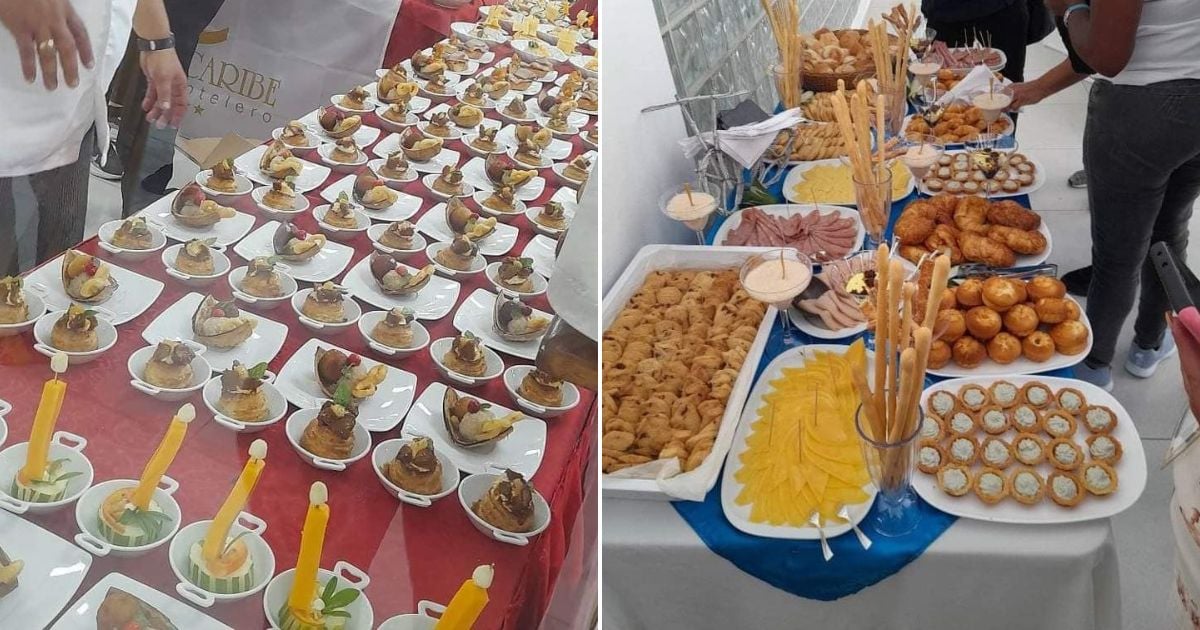While the Cuban population grapples with one of the worst economic and food crises in its history, the regime inaugurated the 14th International Varadero Gourmet Festival with much fanfare this Wednesday. The event, set to run until September 13 at the Plaza América Convention Center in the resort city of Matanzas, stands in stark contrast to the daily struggles of ordinary Cubans.
As the Cuban people face severe food shortages and inflation, consequences of the failed economic policies of leader Miguel Díaz-Canel, participants at the festival will debate the theme of "The Evolution of Cuban Gastronomy," according to the website Excelencias Gourmet. The event brings together industry experts for various conferences and will include cooking, gastronomy, and cocktail competitions, as well as specialized exhibitions. This media spectacle is far removed from the harsh reality faced by the average Cuban, who suffers from acute food scarcity.
Despite these hardships, Ariadna Viñas, commercial director of the Palmares Extra-Hotel Company, one of the participating entities, boasted that Varadero Gourmet will cover topics such as transformations in the kitchen, tradition and haute cuisine, artistic cooking, alternative cooking knowledge, renewed tradition, and the teaching of gastronomy along with its educational and cultural influences.
Similarly, Lázaro Casabella, deputy director of Palmares, noted that the event aims to showcase the evolution of gastronomy in terms of sustainability, serving as a platform for the socialization of experiences.
Official journalist Borge Alex remarked on Facebook that Varadero Gourmet promotes "the development of the Cuban gastronomic sector" and encourages "the exchange of knowledge and trends." He described the festival as "A Journey Through Flavors," featuring exhibitions of culinary innovations, tastings of unique flavors ranging from Cuban cuisine to international trends, and workshops led by culinary experts.
Various entities will present a range of products that most Cubans will likely never see in their daily lives, but which are displayed ostentatiously at this event. Cuba Café stated that Varadero Gourmet will be an opportunity to promote "our exportable products," while the Cuban people endure the scarcity of one of their most cherished pleasures, a steaming cup of coffee.
Meanwhile, Ronera Cárdenas announced that it would showcase "its distinctive brand Perla del Norte and its new projects." As these events unfold in Varadero, the Cuban dining table faces unprecedented shortages.
The Cuban Observatory of Human Rights recently presented its VII Report on the State of Social Rights in Cuba 2024, offering revealing insights into the Cuban reality. The non-governmental organization highlighted that "89% of Cuban families suffer from extreme poverty," a one-percentage-point increase from last year and a 13% rise from 2022. One of the most significant findings is that "7 out of 10 Cubans have skipped breakfast, lunch, or dinner due to lack of money or food scarcity."
Cuba's Food Crisis and the Varadero Gourmet Festival
Here are some frequently asked questions regarding the ongoing food crisis in Cuba and the Varadero Gourmet Festival.
What is the Varadero Gourmet Festival?
The Varadero Gourmet Festival is an international event held in Matanzas, Cuba, that focuses on various aspects of gastronomy, including cooking competitions, exhibitions, and expert-led workshops.
Why is the Varadero Gourmet Festival controversial?
The festival is controversial because it occurs amidst severe food shortages and economic hardship in Cuba, highlighting a stark contrast between the lavish event and the daily struggles of ordinary Cubans.
Who are some of the key figures involved in the Varadero Gourmet Festival?
Key figures include Ariadna Viñas, commercial director of Palmares Extra-Hotel Company, and Lázaro Casabella, deputy director of Palmares, both of whom have highlighted the festival's focus on sustainability and gastronomic evolution.
What are some of the main themes of the Varadero Gourmet Festival?
The festival covers a range of themes including the transformation of the kitchen, tradition and haute cuisine, artistic cooking, alternative cooking knowledge, and the educational and cultural influences of gastronomy.
